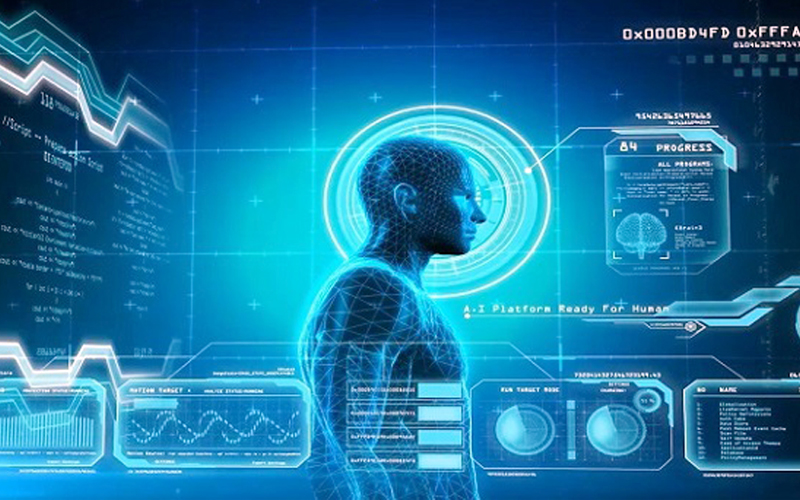As we navigate through 2025, technological advancements continue to accelerate, reshaping industries, economies, and our daily lives. From artificial intelligence to quantum computing, these emerging trends are not only transforming the way we work and live but also setting the stage for a future driven by innovation and connectivity.
1. Agentic AI: Autonomous Decision-Making
Agentic AI refers to systems capable of making autonomous decisions without human intervention. Unlike traditional AI, which requires explicit instructions, agentic AI can perceive environments, make judgments, and act independently. This technology is revolutionizing sectors like finance, healthcare, and logistics by enhancing efficiency and reducing the need for constant human oversight.
According to Gartner, agentic AI is among the top strategic technology trends for 2025, emphasizing its growing importance in enterprise applications. Gartner
2. Quantum Computing: Solving Complex Problems
Quantum computing leverages the principles of quantum mechanics to process information at unprecedented speeds. Unlike classical computers, quantum systems can handle complex computations simultaneously, making them ideal for tasks like cryptography, drug discovery, and financial modeling.
In 2025, advancements in quantum hardware and algorithms are bringing us closer to practical applications, with companies investing heavily in this transformative technology.
3. Spatial Computing: Blending Physical and Digital Worlds
Spatial computing combines augmented reality (AR), virtual reality (VR), and mixed reality (MR) to create immersive experiences that blend the physical and digital realms. This technology is enhancing fields like education, healthcare, and manufacturing by enabling interactive simulations and real-time data visualization.
Deloitte highlights spatial computing as a key trend, noting its potential to revolutionize how we interact with digital content.
4. AI Governance Platforms: Ensuring Ethical AI Use
As AI systems become more pervasive, the need for governance frameworks to ensure ethical and responsible use is paramount. AI governance platforms provide tools for monitoring, auditing, and managing AI models, helping organizations maintain compliance and build trust with stakeholders.
Gartner identifies AI governance as a critical trend, emphasizing its role in mitigating risks associated with AI deployment.
5. Ambient Intelligence: Seamless Integration
Ambient intelligence involves embedding AI into everyday environments, allowing systems to respond to human presence and behavior seamlessly. From smart homes to intelligent workplaces, this technology enhances user experiences by providing context-aware services without explicit commands.
Capgemini’s TechnoVision 2025 report discusses the rise of ambient intelligence and its impact on creating intuitive, responsive environments. Capgemini
6. Polyfunctional Robots: Versatile Automation
Polyfunctional robots are designed to perform multiple tasks across various domains, increasing flexibility and efficiency in operations. These robots are being deployed in industries like manufacturing, healthcare, and agriculture, where adaptability is crucial.
Advancements in AI and robotics are enabling the development of such versatile machines, as noted in Gartner’s strategic technology trends.
7. Disinformation Security: Combating Misinformation
With the proliferation of digital content, combating misinformation has become a significant challenge. Disinformation security involves deploying AI and machine learning tools to detect and mitigate the spread of false information, ensuring the integrity of data across platforms.
Organizations are investing in technologies to safeguard against disinformation, recognizing its potential impact on public trust and decision-making.
8. Energy-Efficient Computing: Sustainable Technology
As computing demands grow, so does the need for energy-efficient solutions. Innovations in chip design, cooling systems, and data center management are reducing the environmental footprint of technology infrastructure.
Climate tech startups are focusing on making data centers more sustainable, addressing the energy consumption challenges posed by the AI boom. Business Insider
9. Neurological Enhancements: Merging Tech and Biology
Neurological enhancements involve integrating technology with human biology to augment cognitive and sensory functions. From brain-computer interfaces to neuroprosthetics, these advancements are opening new frontiers in treating neurological disorders and enhancing human capabilities. Gartner
Research in this area is progressing rapidly, with implications for healthcare, communication, and human-machine interaction.
10. Hybrid Computing: Combining Classical and Quantum Systems
Hybrid computing merges classical computing architectures with quantum systems to tackle complex problems more efficiently. This approach leverages the strengths of both technologies, enabling breakthroughs in areas like optimization, machine learning, and materials science.
Companies are exploring hybrid models to accelerate innovation and address computational challenges that were previously insurmountable.
Conclusion
The technological landscape of 2025 is marked by rapid advancements that are redefining how we interact with the world. From autonomous AI systems to sustainable computing solutions, these emerging trends are not only enhancing efficiency but also shaping a future where technology is seamlessly integrated into every aspect of our lives. Staying informed and adaptable is key to leveraging these innovations for societal and economic growth.
